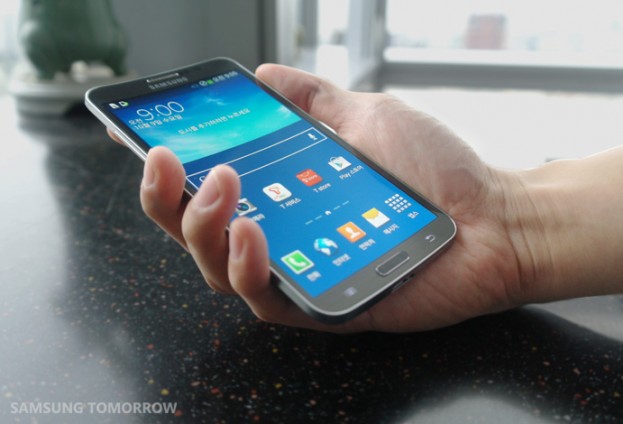

Sales of smartphones around the world surpassed those of feature phones for the first time in 2013, according to latest figures released by Gartner, with Samsung and Android retaining their crowns as the most popular smartphone manufacturer and operating system.
Smartphones accounted for 53.6 percent of all handsets sold last year, and 57.6 percent of total sales in the fourth quarter, with analysts suggesting that the falling cost of hardware and the rise in number of local manufacturers contributed to the drop in feature phone sales.
“Feature phone sales have been going down in almost every quarter of 2013,” Anshul Gupta, principal research analyst, told TechWeekEurope, noting that although quarter-on-quarter increase was small, smartphones were becoming more affordable.
Gupta says Apple has met expectations with the combined sales of the iPhone 5S and 5C, the first time the company ever launched two new smartphones at the same time, however he adds the company is likely to be happier with sales of the former.
“Certainly 5S sales have exceeded their expectations and 5C has underperformed,” he says, explaining that the 5C is just too expensive. Customers in developing markets prefer the 4S, but deals with NTT DoCoMo in Japan and China Mobile have also boosted sales volume.
Huawei, LG and Lenovo were the third, fourth and fifth most successful manufacturers during 2013. LG’s mobile renaissance has been fuelled by the Google-branded Nexus 4 and Nexus 5 handsets, but Gartner expects regional manufacturers to increase their market share in 2014.
“The top three players’ [Apple, Samsung and LG] share has come down because of local players,” says Gupta. “Some of the prominent ones, like ZTE, Huawei and Lenovo, are becoming very strong in their home market. I’m expecting these regional Chinese players to have a larger share.”
Lenovo acquired Motorola Mobility from Google last month in a deal worth £1.76 billion. Gartner believes that this will allow the firm to expand, but not necessarily in the saturating US market. It says the acquisition will give Lenovo a platform outside of China and access to Google’s patents that should protect it in Europe.
Windows Phone is a distant third with 30.8 million units and a 3.2 percent market share and Gupta admits Microsoft’s mobile platform has disappointed. He says that although market share has increased year-on-year, Windows Phone failed to maintain its momentum, and it will be interesting to see what happens once Microsoft completes its takeover of Nokia.
“We were certainly hoping them to make progress,” he says. “To some extent they’ve really underperformed.”
Gartner expects Android to continue its dominance in 2014, unsure about the prospect of new operating systems such as Tizen and Firefox OS making an immediate impact.
“Android is definitely the strongest mobile operating system,” declares Gupta. “We are expecting more than one billion sales in 2014. That’s really massive.
“We were really expecting Tizen to generate sales in Japan, but this didn’t happen. For any new operating system coming from behind is not going to be easy, but Firefox OS being an HTML5 operating system where you don’t really need to build applications from scratch does give it some advantages. Then again, it is all about the number of devices and the number of manufacturers.”
What do you remember about the smartphones of 2013? Try our quiz!
Multiple pension funds in Australia have been hit in co-ordinated hacking attacks, and unfortunately customers…
Inspector General at the Pentagon confirms investigation into the use of Signal app by US…
After a two month hiatus following crashes of a new drone model, Amazon has resumed…
Marking 50 years of Microsoft, this editorial reflects on its evolution from startup to tech…
But will Beijing or ByteDance allow sale? Amazon joins potential bidders for TikTok in US,…
Elon Musk dismisses report that Trump told cabinet that he expects Musk to leave his…